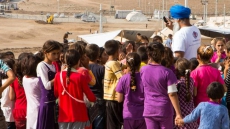On August 19, Pakistan Army Chief General Qamar Bajwa got a three-year extension beyond November. Though the order carried signature of Prime Minister Imran Khan, anyone who understands the affairs of Pakistan knows how much say a Prime Minister has in that country to decide on matters related to the all-powerful Army chief.
Bajwa, who was appointed as the Chief of Army Staff in November 2016, was to retire three months from now but his extension was, significantly, announced at a time when Pakistan is reeling under the shock of India's decision to end special status of Jammu and Kashmir.
In the context of Pakistan, it is widely believed that an Army Chief himself decides on whether he should get an extension or should retire on completion of his term. In the case of Bajwa, this fact is more pronounced, since Khan is seen as someone who was "selected" as the Prime Minister by the army.
The order, by which the extension of the 58-year-old officer was announced, said the decision "has been taken in view of regional security environment". It did not elaborate but the reference was obviously to the tensions being escalated by Pakistan with India after the special status of J&K under Article 370 was abolished on August 7.
Ever since the Modi government took the swift decision, the stunned Imran Khan regime and Pakistani military have been struggling to deal with the situation, amidst questions being raised within that country as to why they could not anticipate the move.
Facing a credibility crisis, Bajwa last week said the Pakistan army "shall go to any extent to fulfill our obligations" with regard to Kashmir.
As Army Chief, Bajwa had succeeded General Raheel Sharif who did not opt for extension unlike his predecessor General Parvez Kayani.
Interestingly, Bajwa's appointment as COAS in 2016, when Nawaz Sharif was the Prime Minister, had come just two months after India carried out a surgical strike across the Line of Control (LOC) in Pakistan-occupied Kashmir in retaliation to terror attack on army camp in Uri in Kashmir.
While the surgical strike took place during the tenure of General Raheel Sharif as COAS, Bajwa's tenure saw India carrying out a more audacious attack in Balakot, deep inside Pakistan, with IAF fighter jets bombing a Jaish-e-Mohammad (JeM) terror camp on February 26 in retaliation to the terror attack in Pulwama in Kashmir 12 days earlier.
In the initial part of its tenure, Bajwa spoke about peace with India, but there has been anything but tranquility on the Line of Control (LoC), which continues to be volatile because of the repeated ceasefire violations by the Pakistan army.
There has also been no let up in Pakistan army's attempts to push terrorists into Jammu and Kashmir to create havoc. Efforts by Pakistan's notorious Inter-Services Intelligence (ISI) to fuel unrest in Kashmir valley also continue.
One big terror strike plotted under Bajwa's watch was the suicide attack carried out on a CRPF convoy on the Srinagar-Jammu national highway in Pulwama district of Kashmir on February 14. The bomber rammed an explosive-laden vehicle into the convoy, killing 40 personnel of CRPF. Pakistan-based JeM owned the attack, escalating tensions between India and Pakistan.
Perhaps, Bajwa and his country did not expect but India hit back just 12 days later, sending fighter jets deep inside Pakistan to bomb a major JeM training camp in Balakot area of Khyber Pakhtunkhwa province.
Although there have been disputed versions about casualties at Balakot, the fact that Indian fighter planes crossed the border and carried out bombings inside Pakistan was the first such development since the 1971 war. The Indian attack was a huge loss of face for the Pakistani military, particularly since all the fighter planes returned home without any damage.
Although the next day, Pakistan sent its fighter planes to bomb India in retaliation, they were really unable to penetrate much beyond the Line of Control (LoC) as the Indian Air Force jets scrambled and chased them away.
In the process, however, the IAF lost one MiG fighter and its pilot Wing Commander Abhinandan was captured by the Pakistani forces. However, as India activated its international connections, Pakistan was forced to release Abhinandan in two days.
Now, with the Modi government ending special status of Jammu and Kashmir, the Pakistani political leadership and military has been rabble rousing, mainly to cater to the domestic audience and to scare the world community in an effort to bring the issue into an international arena.
Against this backdrop, Bajwa is likely to raise temperature at the LoC and create a pretext for some countries, particularly the US, to intervene and push India to have talks with Pakistan. India has refused to have dialogue with Pakistan till it ends cross-border terrorism.
Significantly, Pakistan has not found any significant support from the world community even as it created hue and cry over Article 370. Except for its "all-weather friend" China, which got the matter discussed informally at the UN Security Council, no major country, including the Gulf nations, have supported Pakistan's viewpoint and have held that the decision of the Modi government was an internal matter of India.
Now, one has to see what Bajwa does to save the face of the Pakistan army. How much can he escalate the military tensions, particularly when Indian Defence Minister Rajnath Singh has made it clear that maintaining New Delhi's ‘no first use' on nuclear weapons would depend on the future circumstances?
